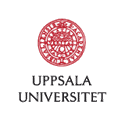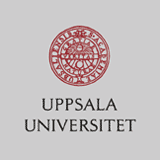Introduction to laboratory methods in pre-clinical research (3 HP)
| Kursnummer | 15 |
| År | 2020 |
| Typ | Subjectcourse |
| Spår | - |
| Max antal deltagare | 20 |
| Sista ansökningsdag | 2020-04-01 |
| Språk | En |
| Kursansvarig | Malin Grönberg, Azita Monazzam, Su-Chen Li, Elham Barazeghi, Maria João Pereira |
| Institution | Medicinska vetenskaper |
| Besöksadress | Akademiska sjukhuset, ing 40, 5 tr |
| Postadress | Akademiska sjukhuset, 751 85 Uppsala |
| Datum | week 16-17 |
| Lokal | Rudbeck laboratory |
| Kurslängd | 2 weeks |
| Kursrapport | |
| Kursplan |
Beskrivning
The course aims to introduce pre-clinical research methods in medical science and to provide the students with the knowledge necessary to understand and to develop a critical understanding of different laboratory techniques. After finishing the course, the student will have an overall understanding of common techniques in pre-clinical research, their applications, interpretation of results and will be able to choose which methods that are relevant to test a specific hypothesis.
Inlärningsmål
After completing the course, the students are expected to be able to:
-Describe the pre-clinical techniques presented in the course, i.e. to be able to explain their theoretical background.
-Differentiate between pre-clinical techniques, their possible applications and limitations.
-Select the appropriate techniques to design a pre-clinical study.
-Be able to independently analyse a pre-clinical study, identify the techniques used, and interpret the experimental results and point out possible pitfalls.
Innehåll
The course aims to give an overview of a few widely used pre-clinical laboratory techniques, including:
-Introduction to pre-clinical research
-Planning: before you start a research project
-Data management
-Metabolic assays
-Omics
-Gene functional studies in vitro and in vivo
-Gene editing with CRISPR/Cas9
-PCR, RT-PCR, real-time PCR
-Protein isolation, immunoprecipitation and Western blot
-Immunohistochemistry and electron microscopy
-Pre-clinical Positron emissions tomography (PET) techniques
Undervisning
The course is given in English. The teaching includes lectures, lab demonstrations and student activities. The course includes pratical exercises and gives examples of interpretations of results. The students are encouraged to bring their laptops to work with pratical exercises.
Attendance in the lectures, seminars and laboratory demonstrations are mandatory. Furthermore, active participation and group discussions in seminars are expected. In case of absence, the student needs to compensate by further work.
Examination
The examination of the course takes place on several occasions during the course and includes:
-Presence in all lectures, lab demonstrations and student activities in groups are mandatory.
-Project assignment: the student will propose a design for its PhD project or part of it, including a pre-clinical technique learned during the course. The project will include a written assignment and a seminar presentation.
-Each student will be assigned to peer-review another student’s project.
urrent techniques. A short report will be submitted to the course leaders. The cases are then presented briefly during the last day and discussed between the groups with the course leaders as discussion leaders.
-All students have to actively participate in the seminar/discussion.
Litteratur
Reviews, articles and compendium.
Lärare
Course leaders.
Kontakt
Malin Grönberg, PhD, research scientist at IMV; Endocrine oncology, malin.gronberg@medsci.uu.se
Azita Monazzam, PhD, research scientist at IMV; Endocrine tumor biology, azita.monazzam@medsci.uu.se
Su-Chen Li, PhD, post doctoral fellow at IMV; Endocrine tumor biology, Su-Chen.Li@medsci.uu.se
Elham Barazeghi, PhD, post doctoral fellow at Department of Surgical Sciences, Endocrine Surgery, elham.barazeghi@surgsci.uu.se
Maria João Pereira, PhD, post doctoral fellow at IMV; Clinical diabetology and metabolism, maria.pereira@medsci.uu.se


